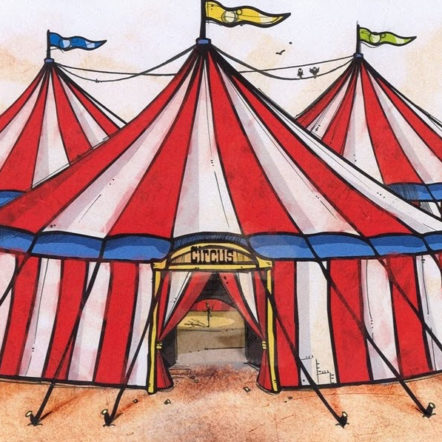The battle for social dominance is over and the results are clear—common sense has been routed and absurdity is savoring the victory. The signs are everywhere. Here are some of them:
Shutting down American fuel industries to help the climate, then buying fuel from countries that hurt it even more.
Permitting millions of people to enter the country illegally and then rewarding them with drivers’ licenses, welfare benefits, and voting rights.
Allowing homeless people and drug addicts to live on streets and beaches or in subways and parks and leave needles and excrement in the path of others.
Responding to the misbehavior of a few police officers by defunding entire police departments and inviting criminal activity in the very neighborhoods that most need protection.
Releasing violent criminals on their own recognizance and assuming they will obey the law after their release.
Refusing to prosecute shoplifting amounts under $900, then being astonished when shoplifters limit their theft to $899 per day.
Labeling anyone who opposes these and other absurdities a “racist.”
Such departures from good sense seem to have occurred almost overnight, but that is not the case. The groundwork was provided a few centuries ago. As I noted almost two decades ago:
“The historical period known both as the Enlightenment and the Age of Reason occurred during the late seventeenth and early eighteenth centuries. The reigning idea of that period was that reason is the only trustworthy source of knowledge. This idea produced two powerful reactions, one supportive and the other opposing. The supportive reaction, Positivism, emphasized scientific investigation, objectivity, and logic; the opposing one, Romanticism, emphasized imagination, subjectivity, and emotion. Every major intellectual movement in the nineteenth and twentieth centuries can be traced, at least in part, to one of these reactions.” (Making Your Mind Matter, Vincent Ryan Ruggiero, 2003.)
Positivism led to Social Darwinism, which held that man is an animal with no higher human nature; Freudianism, which focused on the unconscious but was suspicious of the conscious mind; Behaviorism, which was suspicious of the idea of mind and denied the existence of free will; and Hereditarianism, which held that intelligence is fixed and the mind cannot be trained.
Romanticism led to emotional forms of religion, which valued unquestioning faith but were suspicious of reason; Secular Humanism, which considered religion obsolete, morality subjective, and self-realization paramount; and Humanistic Psychology, which focused on feelings, self-esteem and self-love, and rejected external authority.
Although the movements that followed Positivism were associated with science and those that that followed Romanticism were associated with the humanities, they nevertheless had much in common. Both rejected traditional (if not all) forms of religion; both tended to deny free will; and both held a more or less negative view of reason. (In the case of Positivism, the negative view of reason developed over time in contradiction of its original perspective.)
These common elements had a powerful effect on our culture, notably in education. Believing that the mind cannot be trained led educators to tell students what to thinkrather than teaching them how to think. The Great Books movement opposed that view and for a time succeeded in emphasizing training of the mind. In later decades the Critical Thinking movement expanded that emphasis. However, in the final decades of the twentieth century the preference for emotion over reason, which had never been fully overcome, returned to dominance. As a result, the teaching of thinking was replaced by a focus on feelings rather than reason and self-esteem rather than self-improvement.
For decades, legions of students have been taught that they can create their own truth and therefore have no need to seek it through investigation, analysis, and reasoned judgment. Equally important, they see no point in dialogue, debate, or consultation with those who do not share their views. A great number of these individuals occupy positions of influence in education, journalism, social media, and government, from which they dispense their (presumed) “wisdom” to the masses. Convinced of the infallibility of their “truth,” they can neither examine their own views honestly nor fairly address competing ideas. This inability has ensured that a great number of their beliefs approach or fall headlong into absurdity.
Reality, of course, is unimpressed by delusions of infallibility, no matter how elevated the person’s social station, and continues to reward good sense with favorable outcomes and absurdity with unfavorable ones. Not surprisingly, unfavorable outcomes outrage the delusional, who feel that Reality is ignoring their brilliance! Lacking a way to express their outrage to Reality, they resort to demonizing, censoring, and otherwise punishing those who hold sensible views, as well as to denouncing those views.
The result of this irrational response has been social discord and antagonism, even to the point of violence. Not surprisingly, delusional people accept no personal responsibility for these consequences but instead blame those they have attacked. This response is not based on thought but instead on a feeling that, if put into words, would go something like this—“Those who disagree with me must be at fault because I am incapable of error.”
It seems that the only way the Culture of Absurdity can be overcome and common sense restored is for influential individuals in our institutions to realize their error, return to the traditional perspective on truth, morality, and reason, and encourage their followers to do the same. The chances of that happening in large numbers are not encouraging, however. The influential individuals have been too schooled in self-esteem and too assured of the trustworthiness of their feelings to examine their views honestly and acknowledge where they are mistaken. We can only hope, and pray, that they do so before their absurd ideas and actions destroy our country.
Copyright © 2022 by Vincent Ryan Ruggiero. All rights reserved








